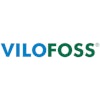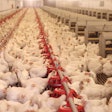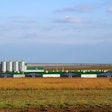Proteases, enzymes that degrade feed proteins
and enhance digestibility, have been around for some time now, in one form or
the other. Their efficacy is more or less known, and most nutritionists will
attest to the fact that their results are very brand-specific. Indeed, enzyme
manufacturers appear to be refocusing their energies in this type of enzyme
lately!
What is drawing the attention of many
nutritionists lately is the effect of proteases on soybean anti-nutritional
factors. Thinking of it, it might make sense considering that some of these
undesirable factors are proteins themselves, and as such prone to degradation.
Of course, they must be quite resistant to natural enzymes or else the animals
would not be having problems when ingesting them at high concentrations. But,
here we’re talking about more powerful enzymes.
So, what happens when soybeans are consumed in
a diet that contains an added (exogenous) protease at a high concentration? Of
course, this raises new questions: how much is high enough, how much reduction
in anti-nutritional factors do we expect, and does it really pay off?
I am sure, very soon we will have answers to
the above questions, but I would like to ask a more daring one; one that many a
producer will be asking me in the months to come:
Is there a protease (or could someone, please,
make one) that can be used in conjunction with raw soybeans?
Now that would be changing the face of the feed
industry like we have never seen it before!













